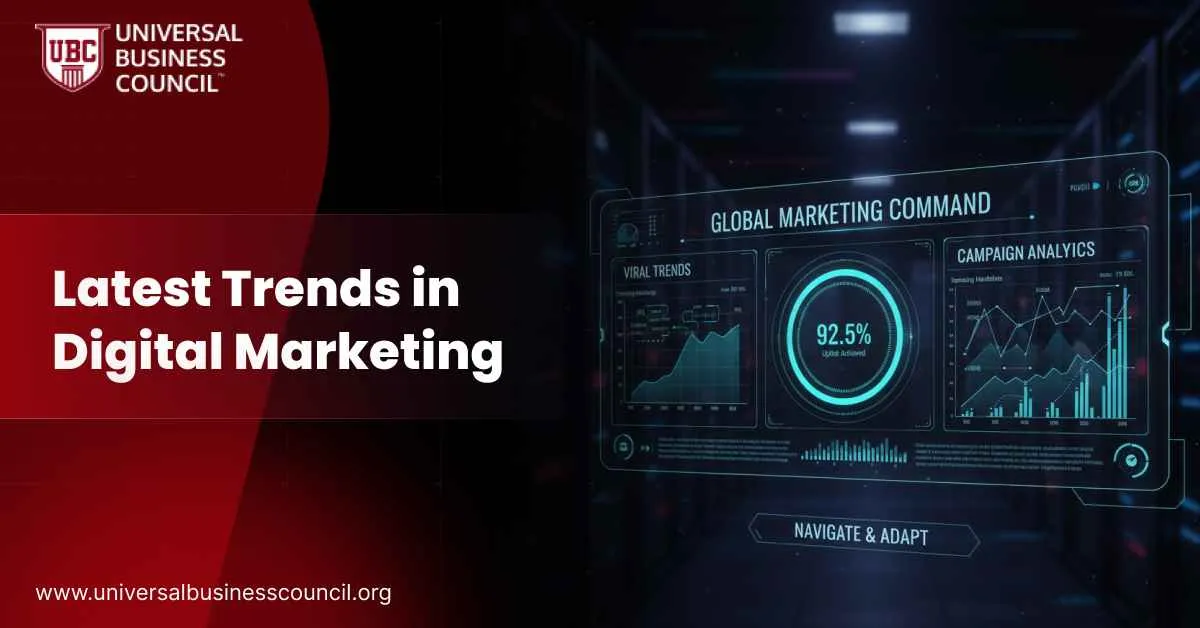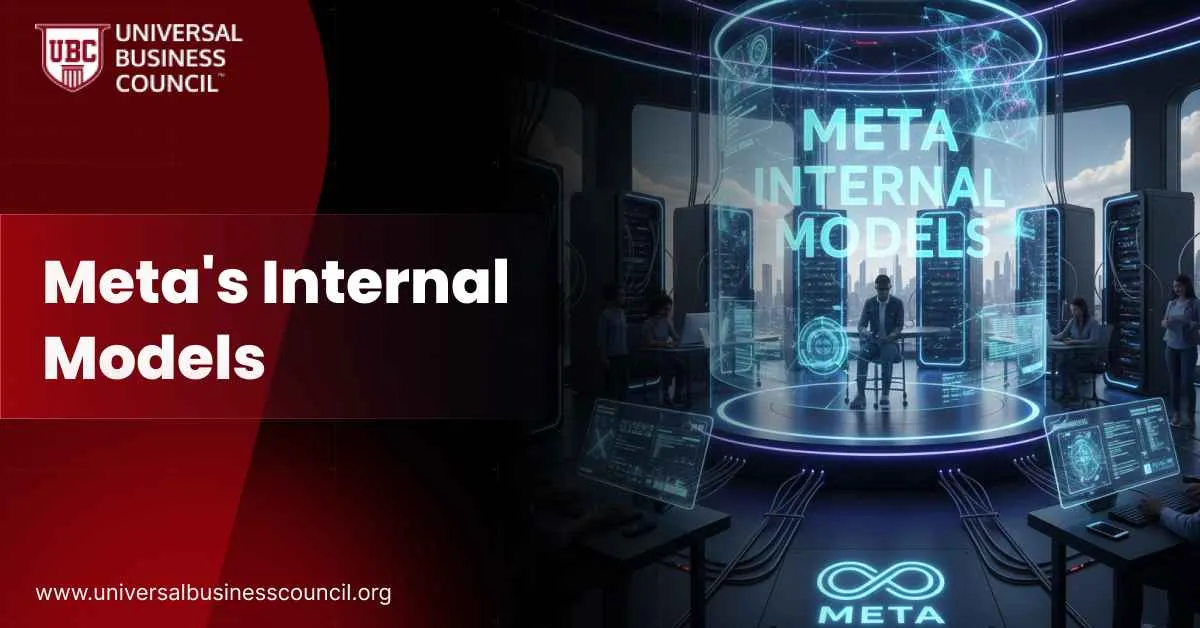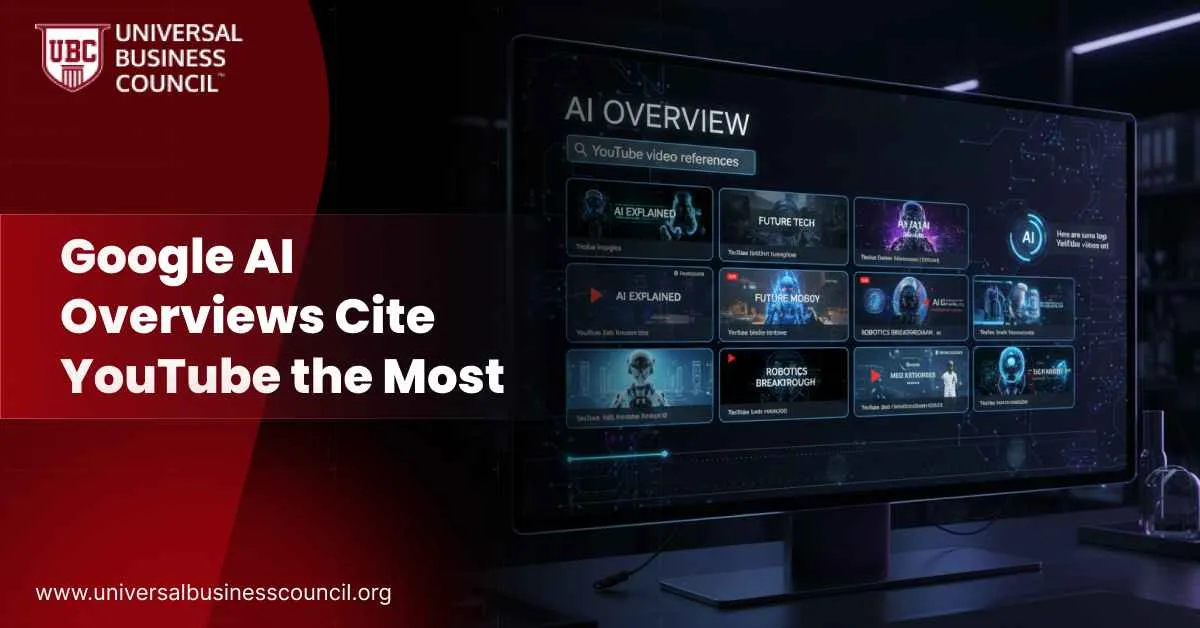 The world of digital marketing is changing faster than ever. Artificial Intelligence, automation, and new consumer behaviors are transforming the way brands engage with their audiences. Marketers who understand these shifts can adapt early, lead innovation, and drive measurable results.
As we move through 2025, digital marketing is becoming more personalized, intelligent, and integrated across platforms. For professionals looking to keep up, enrolling in an AI Powered Digital Marketing Program is one of the best ways to stay competitive in this fast-evolving landscape.
The world of digital marketing is changing faster than ever. Artificial Intelligence, automation, and new consumer behaviors are transforming the way brands engage with their audiences. Marketers who understand these shifts can adapt early, lead innovation, and drive measurable results.
As we move through 2025, digital marketing is becoming more personalized, intelligent, and integrated across platforms. For professionals looking to keep up, enrolling in an AI Powered Digital Marketing Program is one of the best ways to stay competitive in this fast-evolving landscape.
Why Staying Updated with Digital Marketing Trends Matters
Digital marketing evolves with technology and consumer expectations. What worked last year may not work this year. Search algorithms, privacy laws, and audience preferences change constantly, demanding marketers to stay informed and agile.
According to reports by Deloitte Digital and the Digital marketing Institute, 2025 marks a new phase of marketing — one that merges creativity with data, and brand purpose with profitability. The key to success lies in understanding emerging trends and implementing them strategically.
For those who want to learn the technical foundations of how these new marketing technologies operate, the Deep Tech Certification
from Blockchain Council provides a deep dive into the AI and automation systems powering today’s marketing landscape.
1. Artificial Intelligence and Automation Redefine Marketing
AI is no longer a buzzword — it’s a marketing reality. From predictive analytics to automated campaign management, AI is transforming how brands plan, create, and optimize content.
How AI Is Changing the Game
- Predictive analytics: AI tools analyze customer behavior to predict future actions, helping marketers optimize campaigns in real time.
- Generative AI: Marketers use tools like Jasper and Copy.ai to generate social posts, ad copy, and blog content in seconds.
- Smart targeting: Machine learning identifies micro-segments and automates ad placements for better ROI.
- Conversational marketing: Chatbots powered by natural language processing deliver personalized experiences 24/7.
According to GWI’s 2025 report, over 80% of marketing teams now integrate AI automation into daily workflows. This not only saves time but also drives higher campaign accuracy and personalization.
Marketers who want to master these systems can gain hands-on experience through the Tech Certification from Global Tech Council, which covers analytics, machine learning applications, and marketing automation tools.
2. Hyper-Personalization Through Data and AI
Personalization has moved beyond simply using a customer’s name in an email. AI now enables brands to deliver tailored messages, offers, and content based on browsing history, purchase behavior, and even mood.
Examples of AI-Driven Personalization
- Netflix and Spotify: Use AI to curate recommendations based on user patterns.
- E-commerce brands: Display product suggestions based on browsing behavior and price sensitivity.
- Email marketing: Automated workflows deliver custom sequences depending on engagement levels.
According to the 2025 Kantar report, personalization can boost marketing ROI by up to 20%, especially when powered by first-party data. However, this approach requires balancing relevance with privacy, making ethical data handling a top priority for modern marketers.
3. Rise of Voice and Visual Search
Voice and visual search are becoming mainstream thanks to devices like Alexa, Google Lens, and Siri. Consumers increasingly use their voice or camera instead of typing queries.
How Marketers Can Adapt
- Voice optimization: Optimize content for conversational queries and long-tail keywords.
- Visual search: Use high-quality images and alt text to help AI engines understand and index visuals.
- Local SEO: Since most voice searches are location-based, optimizing for “near me” queries is crucial.
Reports from the Digital marketing Institute show that brands investing early in voice and visual SEO are seeing higher engagement and conversions, particularly in retail, travel, and food industries.
4. Social Commerce Becomes the New Shopping Mall
Social platforms are no longer just for brand awareness — they’ve become powerful e-commerce engines. Instagram Shops, TikTok Shop, and Facebook Marketplace allow users to discover and purchase products without leaving the app.
Why It Matters
- Frictionless shopping: Consumers can complete purchases in a few clicks.
- Influencer partnerships: Authentic product recommendations drive higher trust.
- AI-driven recommendations: Social platforms use AI to suggest products based on user interests.
Hootsuite’s 2025 Social Trends Report reveals that social commerce revenue has surged by over 25% year-over-year, with Gen Z leading the adoption curve.
For marketers eager to master omnichannel campaigns that blend social media and commerce, the Marketing and Business Certification
from Universal Business Council provides a strategic framework for digital brand growth.
5. Search Evolves: Beyond Google to Social and AI Search
Search is no longer limited to Google. TikTok, Reddit, and Instagram are now key discovery platforms, particularly for younger audiences. AI-driven search systems like Google’s “AI Overviews” are also changing how information is displayed.
Key Takeaways
- AI-first search results: Brands must optimize for AI summaries that appear above organic listings.
- Social search: Users are searching directly on platforms like TikTok for reviews and tutorials.
- Zero-click results: Marketers must focus on visibility even without direct clicks — through snippets, summaries, and brand mentions.
The rise of AI search means SEO professionals must think beyond keywords. Content that’s authoritative, structured, and trustworthy will perform best in this new era.
6. Short-Form Video and Livestreaming Dominate Engagement
Video continues to be the most engaging format in digital marketing. In 2025, short-form videos (under 60 seconds) and livestreaming are the top formats for engagement.
Emerging Video Trends
- Authentic storytelling: Viewers prefer unscripted, real content over polished ads.
- Educational content: Tutorials, behind-the-scenes, and how-to videos perform strongly.
- Interactive livestreams: Brands use live polls and Q&A sessions to engage audiences directly.
Data from We Are Social’s 2025 Global Report shows that 92% of internet users watch video content weekly, and 63% engage with short-form videos daily.
7. Sustainability and Ethical Marketing Gain Importance
Modern consumers, especially Gen Z, expect brands to be transparent, ethical, and environmentally conscious. Marketing strategies that reflect authenticity and social responsibility are outperforming those focused solely on profit.
Ethical Trends in 2025
- Eco-conscious branding: Highlighting sustainable products and supply chains.
- Inclusive campaigns: Representation and accessibility are central to brand storytelling.
- Data ethics: Transparency in data collection and use fosters trust.
Deloitte’s Marketing Trends 2025 report notes that “purpose-driven marketing” is now a revenue driver, not just a reputation enhancer. Brands that align with authentic values are earning stronger loyalty.
8. The Power of Creator-Led and Community Marketing
Influencers are evolving into creators and community builders. Brands are shifting from one-time sponsorships to long-term partnerships with creators who align with their values.
Why Community Marketing Matters
- Deeper engagement: Audiences trust peer recommendations over ads.
- User-generated content: Encourages participation and authenticity.
- Brand loyalty: Communities create repeat engagement and organic advocacy.
According to GWI’s 2025 marketing insights, community-led strategies drive stronger retention and brand visibility compared to traditional influencer campaigns.
9. Privacy-First Marketing and First-Party Data Strategies
With the decline of third-party cookies and stricter data regulations, marketers are focusing on building first-party data ecosystems.
How Brands Are Adapting
- Collecting consented data through newsletters, loyalty programs, and gated content.
- Using AI to anonymize and segment data ethically.
- Leveraging CRM systems and customer data platforms (CDPs) to unify insights.
The shift toward privacy-first marketing not only ensures compliance but also strengthens customer relationships through transparency and trust.
10. Integrated Omnichannel Experiences
Consumers expect seamless transitions between devices and platforms — from discovering a product on Instagram to purchasing it on a brand website or mobile app.
How to Achieve Omnichannel Success
- Unified messaging: Maintain consistent tone and visuals across all touchpoints.
- Cross-platform data: Use automation to track behavior across channels.
- Real-time engagement: Implement chatbots and AI assistants to connect instantly.
As brands merge marketing, sales, and customer experience into one cohesive journey, the lines between digital and physical interactions continue to blur.
11. Marketing Powered by Analytics and Predictive Intelligence
Data is the new currency of marketing. AI-driven analytics now give marketers the ability to forecast trends, identify opportunities, and measure ROI with precision.
Examples of Predictive Marketing
- Forecasting which ad creative will perform best.
- Predicting churn before it happens.
- Identifying new market opportunities through behavioral clustering.
According to Deloitte, teams that use predictive analytics report up to a 30% improvement in campaign performance.
Professionals looking to master the analytical side of marketing can explore the Tech Certification
from Global Tech Council, which covers data-driven frameworks and marketing automation tools.
12. The Human Touch in an AI-Driven World
While automation and AI enhance productivity, the human element remains essential. Creativity, empathy, and storytelling are irreplaceable in connecting emotionally with audiences.
Balancing Technology with Humanity
- Use AI for efficiency but maintain authentic brand voice.
- Prioritize meaningful storytelling over algorithmic content.
- Ensure campaigns reflect genuine human experiences.
The future belongs to marketers who can merge data precision with human insight — creating campaigns that are both intelligent and heartfelt.
What is the biggest trend in digital marketing right now?
AI and automation are leading trends, influencing everything from personalization to predictive analytics.
How is social media evolving in 2025?
Social platforms are transforming into e-commerce and search ecosystems, with short-form video dominating engagement.
What skills are in demand for digital marketers?
Data analytics, automation, creative storytelling, and ethical marketing practices are among the most sought-after skills.
Is sustainability really influencing marketing?
Yes. Consumers prefer brands that prioritize social responsibility, sustainability, and transparency in operations.
How can marketers keep up with changing trends?
Regular learning, certification programs, and experimentation with new tools are key to staying ahead.
Conclusion
The latest digital marketing trends reveal a future driven by intelligence, authenticity, and purpose. AI and automation continue to enhance efficiency, while personalization and sustainability redefine how brands build trust.
The future of marketing belongs to those who can combine technology with creativity — and use both to tell meaningful stories that connect, inspire, and convert.
 The world of digital marketing is changing faster than ever. Artificial Intelligence, automation, and new consumer behaviors are transforming the way brands engage with their audiences. Marketers who understand these shifts can adapt early, lead innovation, and drive measurable results.
As we move through 2025, digital marketing is becoming more personalized, intelligent, and integrated across platforms. For professionals looking to keep up, enrolling in an AI Powered Digital Marketing Program is one of the best ways to stay competitive in this fast-evolving landscape.
The world of digital marketing is changing faster than ever. Artificial Intelligence, automation, and new consumer behaviors are transforming the way brands engage with their audiences. Marketers who understand these shifts can adapt early, lead innovation, and drive measurable results.
As we move through 2025, digital marketing is becoming more personalized, intelligent, and integrated across platforms. For professionals looking to keep up, enrolling in an AI Powered Digital Marketing Program is one of the best ways to stay competitive in this fast-evolving landscape.



